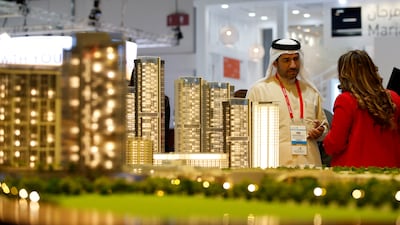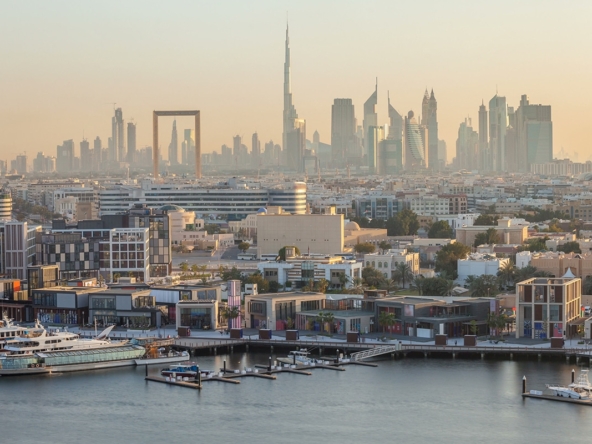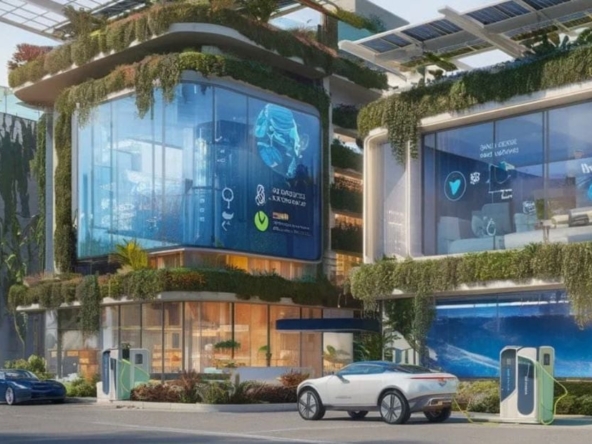They can capture great returns and depend on a reliable rule of law.
For a long time, many foreign institutional investors overlooked the UAE’s real estate sector, perceiving it as speculative and unsustainable. The market was often dismissed as a hub for luxury developments catering to the ultra-wealthy rather than being considered a stable asset class worthy of inclusion in global investment portfolios. However, that perception has shifted significantly.
Today, the UAE has transformed into a technology-driven powerhouse, offering a structured and sustainable real estate market that presents a compelling, income-generating investment opportunity. Institutional investors across Europe, the US, and Asia—especially major pension funds and family offices—are increasingly recognizing the potential and cannot afford to ignore this lucrative market.
A significant portion of luxury real estate investments now comes from institutional investors, who typically contribute between $10 million and $50 million each. Around 80% of the total investment is from international sources, while the remaining 20% comprises local family businesses and high-net-worth individuals investing between $1 million and $2 million.
Growing interest from European and antipodean sovereign wealth funds is evident, although capital deployment is still in the early stages. Additionally, private equity firms and structured real estate funds are following long-term capital allocation strategies, further reinforcing the market’s credibility.
From a global investment perspective, institutional investors seek real estate opportunities that offer a favorable risk-return balance. Such markets are typically characterized by economic and political stability, strong governance frameworks, and promising growth prospects.
In the US, for example, investors can assess risks easily due to well-established financial structures. Comparatively, the UAE operates under different financial mechanisms, such as floating interest rates on loans instead of the long-term, interest-only loans common in America. These distinctions impact investment strategies but also present opportunities for skilled asset managers to maximize returns.
While opportunities abound, real estate investment in the UAE comes with certain challenges. The World Economic Forum’s latest Global Risks Report highlights macroeconomic uncertainties, including geopolitical tensions, climate change, societal polarization, and economic shifts, all of which can impact real estate markets worldwide.
On a more localized level, the difficulty in obtaining building permits in older markets leads to prolonged project timelines. However, the limited availability of space in such areas often results in higher property values. In emerging markets, truly luxurious developments with exceptional construction standards are still relatively scarce.
Market volatility is another consideration, as real estate demand in the Gulf region can fluctuate based on regional economic and geopolitical factors. Unlike Europe and North America, where real estate growth is often replacement-driven, demand in the UAE can shift due to external influences, including developments in Eastern Europe, Asia-Pacific, and the broader Middle East and North Africa region. Rising construction costs, a shortage of skilled labor, and increasing prices for high-quality materials further contribute to investment complexities.
Despite these challenges, institutional investors can mitigate risks and leverage the UAE market’s potential by adhering to disciplined asset and fund management strategies. The region’s high-value luxury real estate funds, for example, have demonstrated the ability to achieve fivefold increases in value within three years from final closing to distribution.
A key factor drawing institutional investors to the UAE is the presence of strong legal frameworks. The Dubai International Financial Centre (DIFC) and the Abu Dhabi Global Market (ADGM) provide regulatory assurances, while the Dubai Financial Services Authority (DFSA) ensures governance and compliance. Investors also benefit from safeguards, such as well-regulated land departments and escrow accounts for off-plan purchases, which enhance confidence in the market.
Another advantage is the increasing number of exit strategies available to investors. Demand for real estate portfolios from local bonds and property development firms has grown, providing institutional investors with more opportunities to realize returns on their investments.
The current surge in institutional interest aligns with strong market performance. The UAE’s residential real estate sector was projected to reach a value of $390 billion in 2024, with property prices rising by 19% for apartments and 23% for villas compared to the previous year. Secondary transactions, values, and off-plan sales have all increased, with further development anticipated in 2025, though at a more measured pace as contractors address the backlog of demand from 2023.
Several long-term trends continue to drive the UAE’s real estate expansion. Firstly, the country’s rising global influence, exemplified by its recent inclusion in the BRICS+ group, highlights its role in shaping economic alliances. This strategic move supports trade, investment, and collaboration with fast-growing markets while reinforcing the UAE’s commitment to knowledge-based economic development and technological innovation.
Secondly, the UAE’s real estate sector has evolved into a mature, institutional-grade asset class. The market is now characterized by mixed-use developments and logistics hubs, with a consistent focus on superior product quality. Institutional investors seeking long-term, sustainable returns are prioritizing assets that not only deliver high yields but also incorporate environmental considerations and top-tier construction standards, ensuring durability and long-term value.
Finally, amidst global economic challenges, the UAE offers a unique blend of stability and growth. Many Western economies face inflationary pressures, sluggish growth, and monetary tightening, reducing investment returns. In contrast, the UAE maintains a robust economy, moderate taxes, and an attractive living environment for high-net-worth individuals, entrepreneurs, and professionals.
With unmatched long-term value, a strong legal framework, and increasing institutional interest, the UAE has positioned itself as a premier destination for global real estate investment. Its evolving market serves as a model for emerging economies, demonstrating how strategic development and regulatory strength can attract sustained institutional capital.



